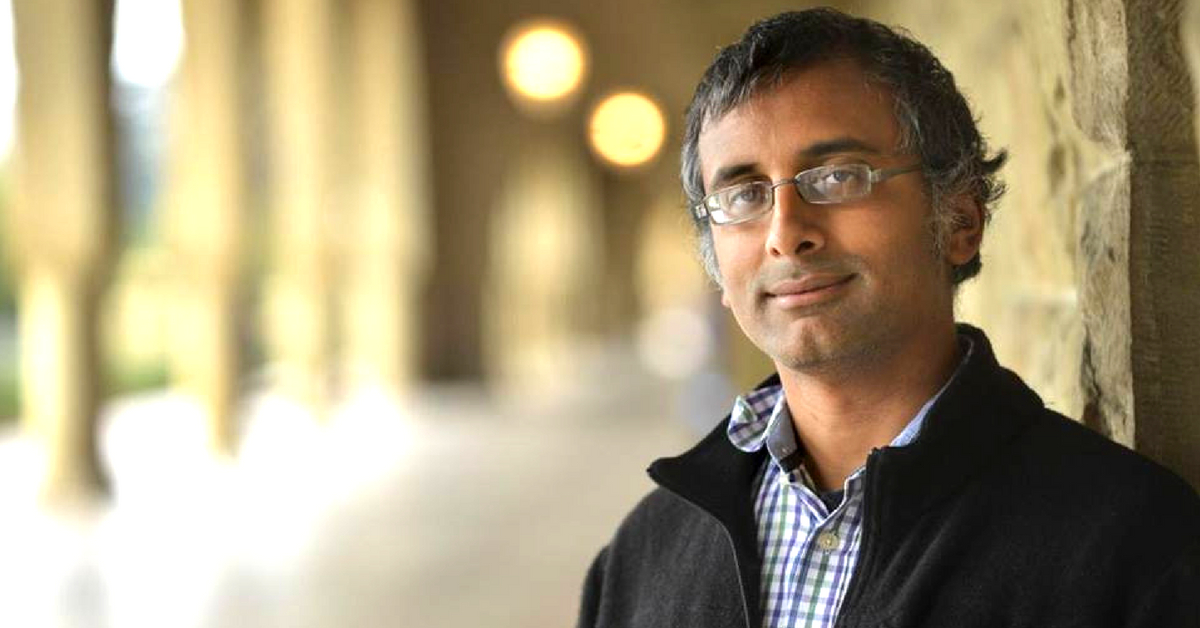Akshay Venkatesh, a 36-year-old Indian-origin mathematician teaching at Stanford University in the United States, is one of the four winners of the prestigious Fields Medal, considered to be the Nobel Prize equivalent for mathematics.
He was presented with the medal at the International Congress of Mathematicians in Rio de Janeiro.
Awarded once every four years to exceptional mathematicians below the age of 40 who have made game-changing contributions to the field, Venkatesh was awarded this medal for his “profound contributions to an exceptionally broad range of subjects in mathematics,” and “strikingly far-reaching conjectures.”

Besides Venkatesh, the other three winners of this award are Caucher Birkar, a professor of Iranian-Kurdish origin at Cambridge University, Peter Scholze from Germany and Alessio Figalli, an Italian mathematician teaching at ETH Zurich. All winners will receive 15,000 Canadian dollars as cash prize.
Venkatesh moved to Perth, Australia, with his parents when he was just two years old. A child prodigy, he graduated from high school at the age of 13, graduated from the University of Western Australia top of his class in mathematics when he was 16, and earned his PhD at 20.
He also won medals in both the physics and math Olympiads (premier international competition for high school students) at the age of 11 and 12, respectively. Following his PhD, he held a doctoral position at MIT and is currently a professor in Stanford University.
Also Read: Reel vs Real: Why This Math Wizard from Bihar is Getting a Biopic On His Life!
According to the Press Trust of India, he has “worked at the highest level in number theory, arithmetic geometry, topology, automorphic forms and ergodic theory,” besides winning a host of other awards like “Ostrowski Prize, the Infosys Prize, the Salem Prize and Sastra Ramanujan Prize.”
The mathematician was “recognised for his use of dynamics theory, which studies the equations of moving objects to solve problems in number theory, which is the study of whole numbers, integers and prime numbers,” according to The Guardian.
“A lot of the time when you do math, you’re stuck, but at the same time, there are all these moments where you feel privileged that you get to work with it. You have this sensation of transcendence; you feel like you’ve been part of something really meaningful,” he told The Guardian.
(Edited by Gayatri Mishra)
Like this story? Or have something to share? Write to us: contact@thebetterindia.com, or connect with us on Facebook and Twitter.
NEW: Click here to get positive news on WhatsApp!
If you found our stories insightful, informative, or even just enjoyable, we invite you to consider making a voluntary payment to support the work we do at The Better India. Your contribution helps us continue producing quality content that educates, inspires, and drives positive change.
Choose one of the payment options below for your contribution-
By paying for the stories you value, you directly contribute to sustaining our efforts focused on making a difference in the world. Together, let's ensure that impactful stories continue to be told and shared, enriching lives and communities alike.
Thank you for your support. Here are some frequently asked questions you might find helpful to know why you are contributing?
